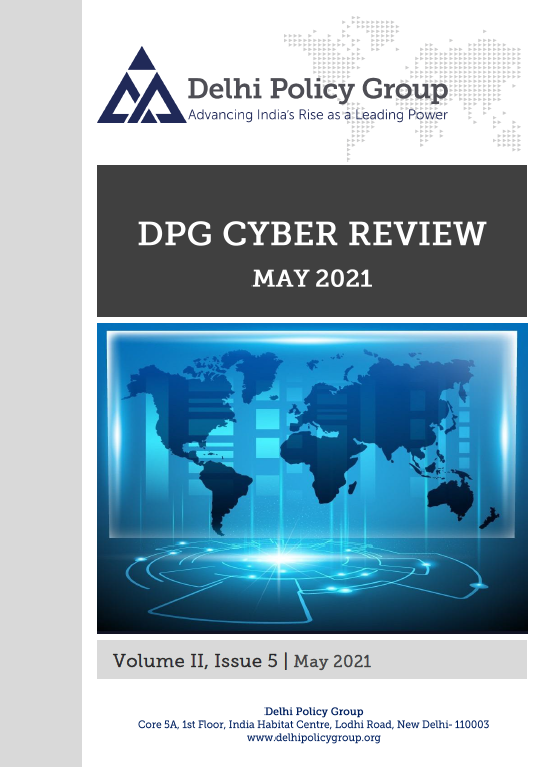Vol. II, Issue 5
Date: June 02, 2021
The revelation this month of the hacking of the Indian carrier, Air India, that compromised the personal data of more than 4.5 million passengers, is disturbing. Personal data from several other Indian organisations has been stolen in recent months and placed on the dark web for sale. Such data breaches call for effective security and accountability measures.
Effective from May 26, social media platforms in India are required to comply with new IT Rules 2021 that codify provisions under national laws to enhance accountability, security and public order. Most social platforms have faltered in their compliance. Trust between them and the Indian government has been further shaken by public acrimony and resort to legal recourses.
The much-awaited 5G trials are set to begin in India with experimental 5G spectrum. Global and indigenous technology along with equipment identified by telecom service providers will be tried, to test Indian use cases. Chinese vendors have been excluded from the 5G trials.
A series of cyberattacks this month have exposed the regulatory laxities to secure US domestic networks. A major ransomware attack on a vital US oil pipeline, and phishing attacks on several email accounts by hackers earlier linked to the SolarWinds cyber espionage, come days before a meeting between Presidents Biden and Putin in Geneva.
The Covid-19 pandemic has also ushered in a global ransomware pandemic. Most criminal attacks on critical infrastructure or sale of personal/enterprise data on the dark web aim for extortion through crypto currencies. This has led some experts to suggest that the menace of ransomware attacks can be stopped by banning cryptocurrencies, or by imposing effective regulatory measures.
The United States and China are aggressively competing on every aspect of digital technology, and in all geographies. Both countries are trying to out-subsidise and out-innovate each other to retain a technological edge.
Effective from May 26, social media platforms in India are required to comply with new IT Rules 2021 that codify provisions under national laws to enhance accountability, security and public order. Most social platforms have faltered in their compliance. Trust between them and the Indian government has been further shaken by public acrimony and resort to legal recourses.
The much-awaited 5G trials are set to begin in India with experimental 5G spectrum. Global and indigenous technology along with equipment identified by telecom service providers will be tried, to test Indian use cases. Chinese vendors have been excluded from the 5G trials.
A series of cyberattacks this month have exposed the regulatory laxities to secure US domestic networks. A major ransomware attack on a vital US oil pipeline, and phishing attacks on several email accounts by hackers earlier linked to the SolarWinds cyber espionage, come days before a meeting between Presidents Biden and Putin in Geneva.
The Covid-19 pandemic has also ushered in a global ransomware pandemic. Most criminal attacks on critical infrastructure or sale of personal/enterprise data on the dark web aim for extortion through crypto currencies. This has led some experts to suggest that the menace of ransomware attacks can be stopped by banning cryptocurrencies, or by imposing effective regulatory measures.
The United States and China are aggressively competing on every aspect of digital technology, and in all geographies. Both countries are trying to out-subsidise and out-innovate each other to retain a technological edge.



